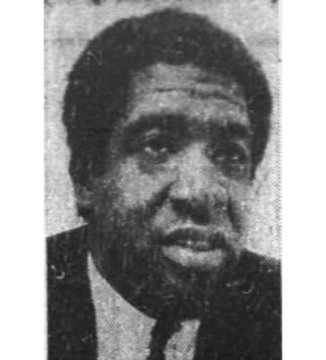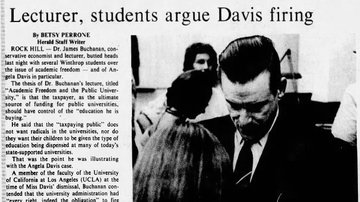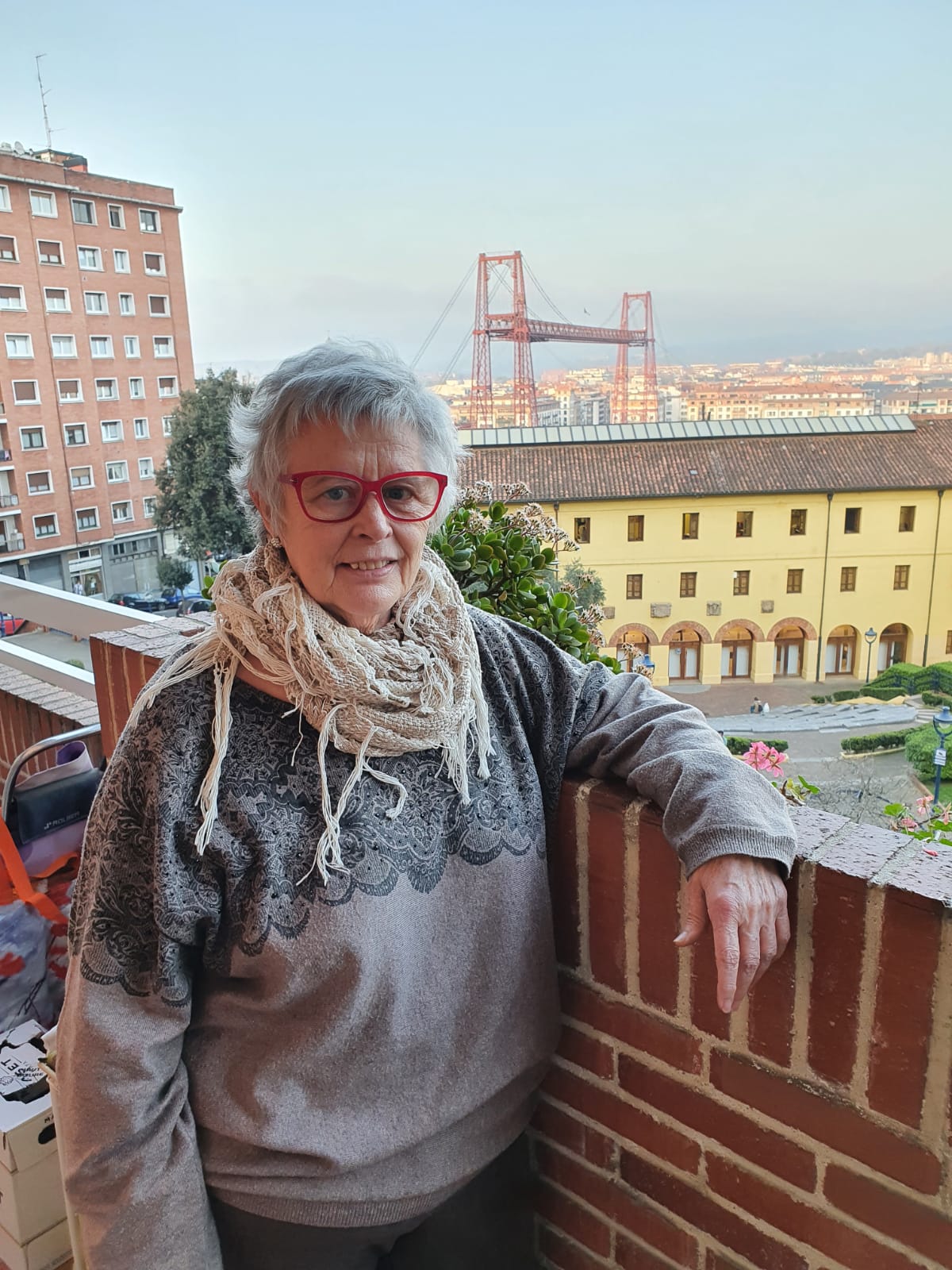Daniel Kuehn@D_Kuehn
abu. 12
In light of developments in Florida and West Virginia around academic freedom, I thought I’d share a new working paper of mine: “A purge of bigots is more important than one of Communists”: Robert Singleton, James M. Buchanan, and Angela Davis at UCLA
https://papers.ssrn.com/sol3/papers.cfm?abstract_id=4539266
Angela Davis UCLA-n
“A purge of bigots is more important than one of Communists”: Robert Singleton, James M. Buchanan, and Angela Davis at UCLA
(file:///C:/Users/Joseba/Downloads/SSRN-id4539266.pdf)
Daniel Kuehn
Abstract: This paper provides a history of two economists who took opposing stances in the controversy surrounding Angela Davis at the University of California, Los Angeles (UCLA) in the late 1960s and early 1970s. Robert Singleton, a UCLA Economics PhD candidate and the first director of the UCLA African American Studies Center in 1969, was a staunch defender of Davis’s and leader in her defense campaign. James M. Buchanan, a professor at UCLA in the 1968-1969 academic year, waged both a public and private campaign against Davis. The interwoven stories of Davis, Singleton, and Buchanan show how one prominent economics department handled and mishandled racism, academic freedom, student unrest, and state power
Introduction
Angela Davis is the quintessential scholar-activist. Her career began with graduate studies in French literature and German philosophy, culminating in doctoral research on Kant and violence under the supervision of the critical theorists Theodore Adorno and Herbert Marcuse. Davis’s academic work quickly blended into political action on behalf of Black people, women, and people in prisons, and against what Cedric Robinson would later call racial capitalism. This paper draws on archival evidence to weave Angela Davis’s experience in Los Angeles in the late 1960s and early 1970s, together with the stories of two economists: Robert Singleton and James M. Buchanan. Economists are usually not discussed in conjunction with Angela Davis’s ordeal in Los Angeles. Instead, Philosophy Department and Law School faculty typically take center stage. But both Singleton and Buchanan intervened in the controversy that engulfed Davis at the University of California, Los Angeles (UCLA) disrupting her nascent academic career.
Davis’s employment as an assistant professor in the UCLA Philosophy Department was first disrupted by the University of California (UC) Board of Regents in September 1969, when they directed UCLA to fire her for her membership in the Communist Party. This offensive was successfully resisted thanks in part to the support and activism of Robert Singleton, only for the Regents to disrupt her career a second time when they did not renew her contract in the summer of 1970. Then, in August 1970, Davis’s ties to the Marin County Courthouse shootout put her on the Federal Bureau of Investigation’s (FBI) Most Wanted List. Singleton again rose to Davis’s defense when she went underground, while Buchanan privately wrote to the UC Regents, urging them to use what he called the “wonderful opportunity” of the four deaths at the shootout to purge Davis’s defenders from the UC system.
Singleton and Buchanan shared a professional background in economics and were colleagues at UCLA during the 1968-1969 academic year, but they approached Davis’s employment, arrest, and trial in dramatically different ways. Although only a UCLA Economics PhD student at the time, Singleton leveraged his role as the first director of the Afro-American Studies Center (AASC),(1) his assistant professorship inthe Graduate School of Management, and the respect he commanded from both the Black Students’ Union (BSU) and UCLA faculty to fight for Davis. He advocated for A gela Davis on and off campus and was chairman of the Angela Davis Defense Committee. The Los Angeles Herald Examiner deemed Singleton “her principal supporter” (Hanna, 1969), although subsequent histories have downplayed his role, focusing instead on white professors such as Don Kalish and Leon Letwin.
Buchanan, in contrast to Singleton, used his connections to lobby the Regents to assert the discretionary authority of state government over faculty and punish Angela Davis and her supporters. The Regents’ divergent response to the two economists was stark. Singleton was denied an audience when he reached out in September 1969, but when Buchanan wrote to the Regents about Davis in August 1970, he was deluged with prompt and supportive replies.
Although he received academic training in economics at UCLA, Robert Singleton transcended the confines of the discipline as a scholar, activist, and founding director of the UCLA Afro- American Studies Center (AASC). He was active in the Civil Rights Movement, participating in both the Woolworth’s boycott in 1960 and the Mississippi Freedom Rides in 1961.(2) At the beginning of his studies, Singleton worked on international economics, but he was increasingly drawn to labor economics, education, and urban economic development. He began working on his doctorate at UCLA under the supervision of Jack Hirshliefer, studying whether the minimum wage hurt “disadvantaged workers” (U.S. Department of Labor, 1967). As an “all but dissertation” doctoral candidate, Singleton’s base at UCLA in the late 1960s and early 1970s was the Graduate School of Management, where he was an assistant professor. In 1970, he co- founded the Journal of Black Studies with Molefi Kete Asante (the second director of the AASC). Singleton ultimately stopped working with Hirshliefer and finished his doctorate in 1983 with a dissertation on the capitalization effect of California’s Proposition 13 (Singleton, 1983).
By his 1968 arrival in Los Angeles, James M. Buchanan was an established scholar, well known for his contributions to public finance and the emerging field of public choice. He would go on to win the Nobel Prize in 1986 and was closely associated with the University of Virginia (UVA), Virginia Tech, and George Mason University. Although Buchanan is well-known to economists, he has only recently become better known outside of economics thanks to Nancy MacLean’s Democracy in Chains, which documents both Buchanan’s academic career and his role in the conservative and libertarian movements. One of the most memorable episodes of MacLean’s book is the story of Buchanan’s exasperation with the student movementduring his year at UCLA (1968-1969) and the early part of his tenure at Virginia Tech (1969-1983). Buchanan’s experiences at UCLA have been ably documented by MacLean, and independently by Jean- Baptiste Fleury and Alain Marciano, so I only briefly review them here. However, his involvement with the Angela Davis affair has been entirely neglected. This paper therefore provides an addendum to MacLean (2017) and Fleury and Marciano’s (2018) accounts of time at UCLA, adding details about his campaign against Davis and the UC administration and contrasting Buchanan’s response with Singleton’s.
To keep Davis, Singleton, and Buchanan’s interwoven stor ylines clear, this paper proceeds chronologically, first focusing on the 1968-1969 academic year that encompassed the planning and launch of Singleton’s AASC and Buchanan’s year at the UCLA Economics Department. This was a stage setting year for what was to come next for both Singleton and Buchanan in their relationship with Angel a Davis. The paper then moves to Davis’s time at UCLA, the 1969-1970 academic year. It concludes witht he period after the summer of 1970, including Angela Davis’s and Buchanan’s use of Davis to promote his view of academic authority and academic freedom. If Angela Davis herself sometimes seems to be superseded by Robert Singleton in this account, it is only because my purpose is to elaborate Singleton’s largely neglected story. I do not mean to diminish Davis’s inspirational and vigorous self-advocacy, which is documented elsewhere (e.g., Apthekar, 2014; Davis, 1974; Davis and Wiener,2020).
(1) The Afro-American Studies Center has had many names throughout its history, including the Center for the Study of Afro-American History and Culture and most recently the Ralph J. Bunche Center for African American Studies. Because the center was called the Afro-American Studies Center (AASC) during Singleton’s tenure, that name is used here.
(2) For details, see “Interview with Robert Singleton for the Freedom Riders 40th Anniversary Oral History Project, 2001” University of Mississippi. November 8, 2001 Freedom Riders 40th Anniversary Oral History Project, Archives and Special Collections, University of Mississippi Libraries, https://egrove.olemiss.edu/freeriders/30 /, and Kemper (2000).
(…)
(PDF-ko dokumentuan segitzen du)
Mirentxuri, gogoratuz:








